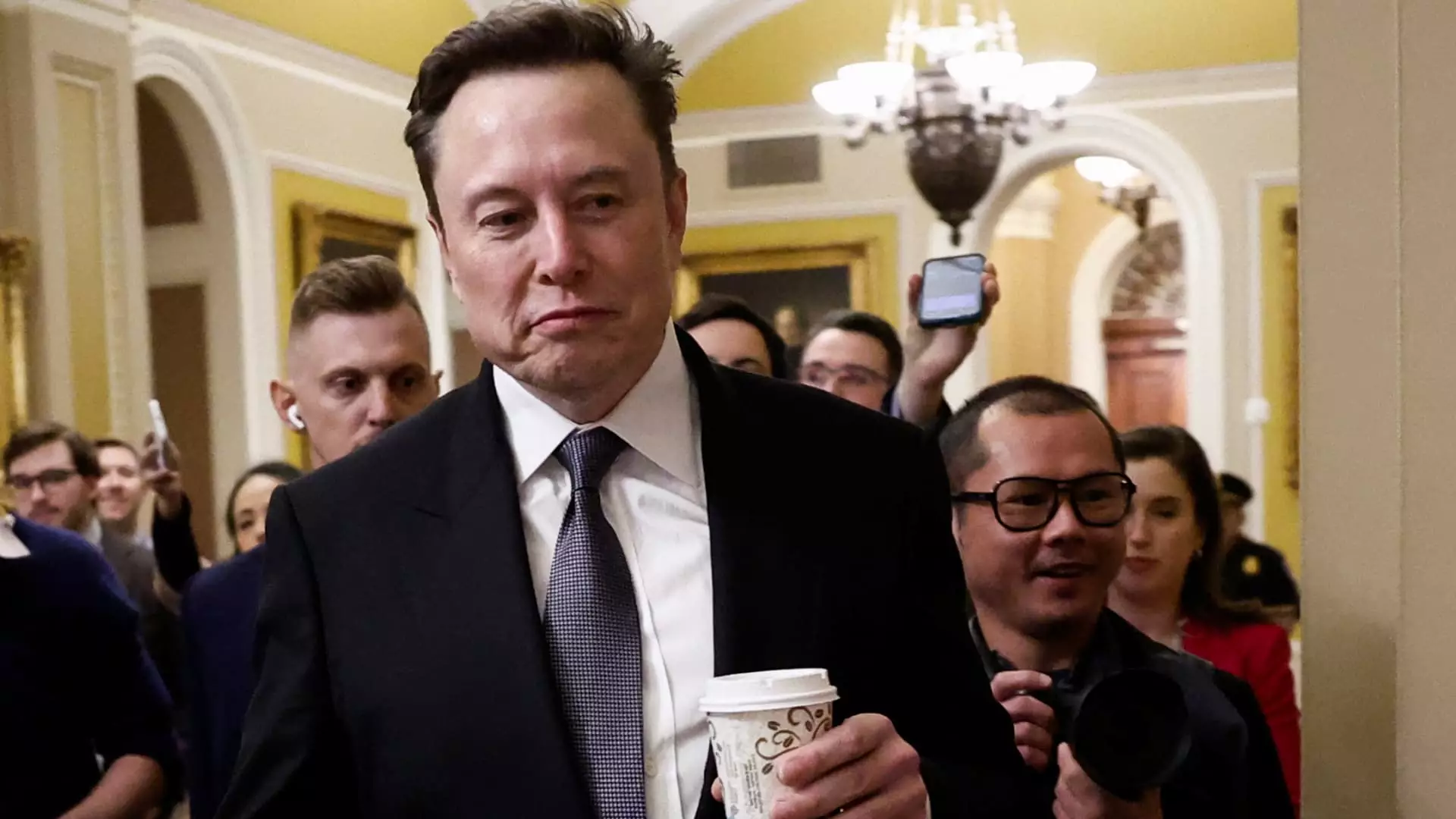The intricate dance of governance in the United States often sees members of both sides of the aisle come together to tackle pressing issues. Recently, however, a significant bipartisan funding bill aimed at regulating American investments in China found itself sabotaged, with House Democrats attributing its failure to the influence wielded by Tesla and SpaceX CEO Elon Musk. This incident highlights not only the friction between political parties but also how powerful corporate interests can dictate legislative outcomes. Jim McGovern of Massachusetts and Rosa DeLauro of Connecticut have emerged as vocal critics, suggesting that the Republican party’s capitulation to Musk’s demands has grave implications not just for U.S.-China relations, but for the integrity of American technological innovation itself.
Amidst the chaos, Congress managed to pass a stopgap funding bill over the weekend, narrowly avoiding a government shutdown. While this temporary solution provides a momentary reprieve, it also raises questions about the sustainability and reliability of the legislative process. McGovern articulated disappointment in a series of posts on X (formerly Twitter), lamenting that the government missed a prime opportunity to strategically fortify the American position in cutting-edge technologies such as artificial intelligence and quantum computing. These fields are pivotal for maintaining U.S. competitiveness in the face of growing global challenges, particularly from China. The proposed regulation aimed to keep these technologies—and the associated jobs—firmly within American borders, yet was halted at the whims of corporate influence.
At the heart of this controversy is Elon Musk’s unique position as a billionaire entrepreneur with extensive interests in China. Tesla’s operational structure, without the need for a local joint venture, singularly positions it as a foreign automaker in China, and Musk’s recent ventures there further amplify concerns over U.S. national security. McGovern’s assertions pointed to Musk’s desire to cultivate favorable relations with the Chinese government, as evidenced by his ongoing attempts to establish an AI data center in China and the controversial withholding of Starlink services at the behest of Chinese officials. Such actions beg the question: To what extent should corporate leaders prioritize national interests over their business ambitions?
Rosa DeLauro, a senior figure on the House Appropriations Committee, echoed McGovern’s sentiments, emphasizing the troublesome aspect of Musk’s relationship with the Chinese Communist Party. In a pointed address to Congress, she articulated concerns that Musk’s dependence on Chinese government approval for his projects could compromise U.S. security and policy integrity. This relationship raises ethical questions about lobbying, competition, and loyalty—elements that often collide within the legislative landscape, especially as China continues to rise as a dominant player on the global stage.
To compound the situation, the political theater in Washington now seems precariously intertwined with Musk’s financial clout and political maneuverings. An evident shift occurred when Musk’s vocal opposition to the funding bill aligned closely with Donald Trump’s political agenda. The allegations of Musk serving as a quasi-advisor to Trump—coupled with the staggering $277 million he contributed to Trump and other Republican initiatives—paint a picture of an ecosystem where monetary contributions and influence facilitate significant legislative changes. Such dynamics add to the ongoing discourse regarding the revolving door between high finance and political power, challenging the integrity of the democratic process.
The recent events surrounding the bipartisan bill underscore the urgent need for vigilance in safeguarding legislative integrity against encroaching corporate interests. As the landscape continues to evolve, the convergence of politics and corporate influence challenges traditional notions of governance and accountability. As American lawmakers navigate these treacherous waters, it remains imperative to ensure that governmental responsibilities do not yield to the whims of wealthy individuals. If policymakers can harness this moment to forge stronger regulations that guard national interests, they may yet turn the tide against the looming specter of compromised governance. The future depends not only on the legislative decisions made today but also on how Congress positions itself amidst the intricate interplay of power, money, and national security.

